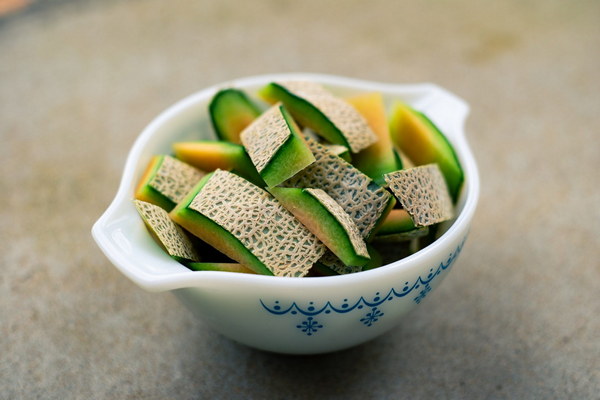Unlock the Secrets of Traditional Chinese Medicine Learn Health and Wellness for Free
Are you interested in exploring the ancient art of Traditional Chinese Medicine (TCM) and enhancing your health and wellness? Look no further! This article will guide you through the basics of TCM, providing you with valuable insights and practical tips to help you embark on your journey to a healthier life. The best part? You can learn all this for free!
Traditional Chinese Medicine is a holistic system of healthcare that has been practiced for thousands of years, focusing on balancing the body, mind, and spirit. It encompasses a variety of practices, including acupuncture, herbal medicine, tai chi, and dietary therapy. By understanding the principles of TCM, you can take charge of your health and well-being, leading to a happier and more fulfilling life.
Here's a comprehensive guide to help you get started:
1. The Foundations of TCM
TCM is based on the belief that the body is a complex system of interconnected elements, including the five elements (wood, fire, earth, metal, and water), the Yin and Yang energies, and the meridian system. By understanding these foundational concepts, you can better comprehend how TCM works to maintain balance and treat illness.
1.1 The Five Elements
The five elements represent different aspects of the body and its functions. By understanding how these elements interact, you can identify imbalances and address them with appropriate treatments. For example, if you have a wood element imbalance, you may experience stress, anxiety, or poor digestion.
1.2 Yin and Yang
Yin and Yang are complementary forces that maintain balance within the body. Yin represents cool, slow, and passive qualities, while Yang represents hot, active, and dynamic qualities. A balanced Yin and Yang is essential for good health. When these forces are imbalanced, illness may occur.
1.3 The Meridian System
The meridian system consists of channels through which Qi (vital energy) flows. By understanding the meridians and their associated organs, you can identify imbalances and treat them using acupuncture or other TCM techniques.
2. Acupuncture
Acupuncture is a key component of TCM, involving the insertion of fine needles into specific points along the meridians. This technique helps to restore balance and improve Qi flow, thereby alleviating pain and promoting healing.
To learn more about acupuncture, you can:
- Watch online tutorials and videos demonstrating needle insertion techniques.
- Find free online resources that explain the principles behind acupuncture and its benefits.
- Join a local acupuncture group or community to discuss and share experiences.
3. Herbal Medicine

Herbal medicine is another vital aspect of TCM, utilizing natural plant-based remedies to treat various conditions. Many herbal formulas have been used for centuries and can be found in various forms, such as teas, capsules, and powders.
To learn more about herbal medicine, consider:
- Reading books or articles on TCM herbs and their properties.
- Joining online forums or social media groups where you can discuss herbal remedies and share experiences.
- Consulting a qualified TCM practitioner for personalized advice.
4. Tai Chi and Qigong
Tai Chi and Qigong are gentle exercises that promote relaxation, improve flexibility, and enhance overall well-being. These practices focus on cultivating and balancing Qi, leading to a harmonious body and mind.
To get started with Tai Chi and Qigong:
- Find free online tutorials or videos demonstrating basic movements and sequences.
- Join a local class or community group to practice with others.
- Invest in a Tai Chi or Qigong guidebook to deepen your understanding of these practices.
5. Dietary Therapy
Dietary therapy is a crucial component of TCM, emphasizing the importance of eating according to your body's needs and balancing the five elements. By understanding the nutritional properties of different foods, you can create a diet that supports your health and well-being.
To learn more about dietary therapy:
- Read books or articles on TCM dietary principles.
- Join a cooking class that focuses on TCM-inspired recipes.
- Consult with a TCM practitioner for personalized dietary advice.
In conclusion, Traditional Chinese Medicine offers a wealth of knowledge and practices that can help you achieve better health and well-being. By exploring the basics of TCM and incorporating its principles into your daily life, you can unlock the secrets to a healthier, happier life. So, what are you waiting for? Start your journey today and embrace the power of TCM!









